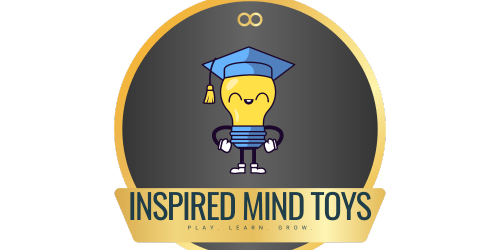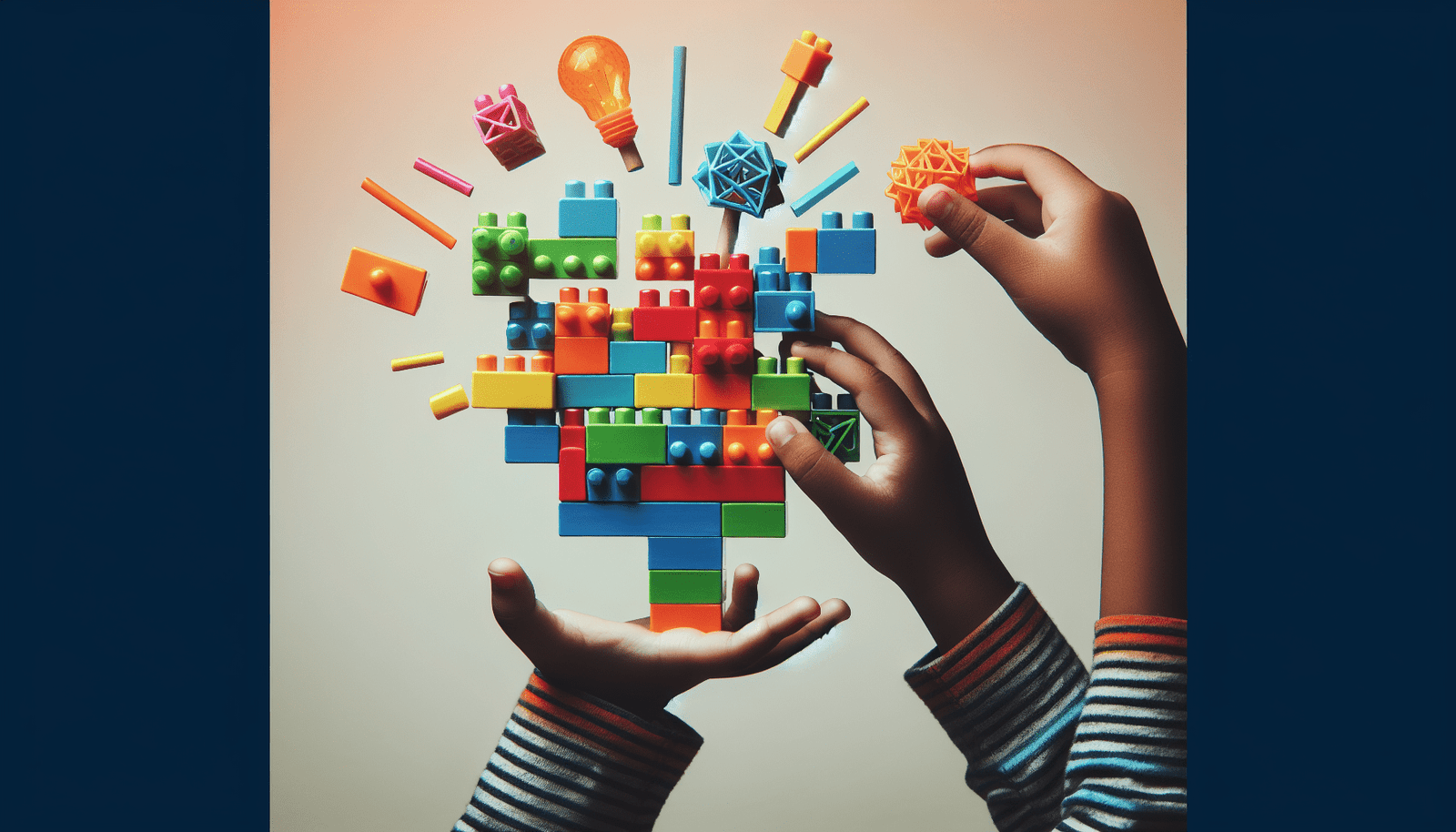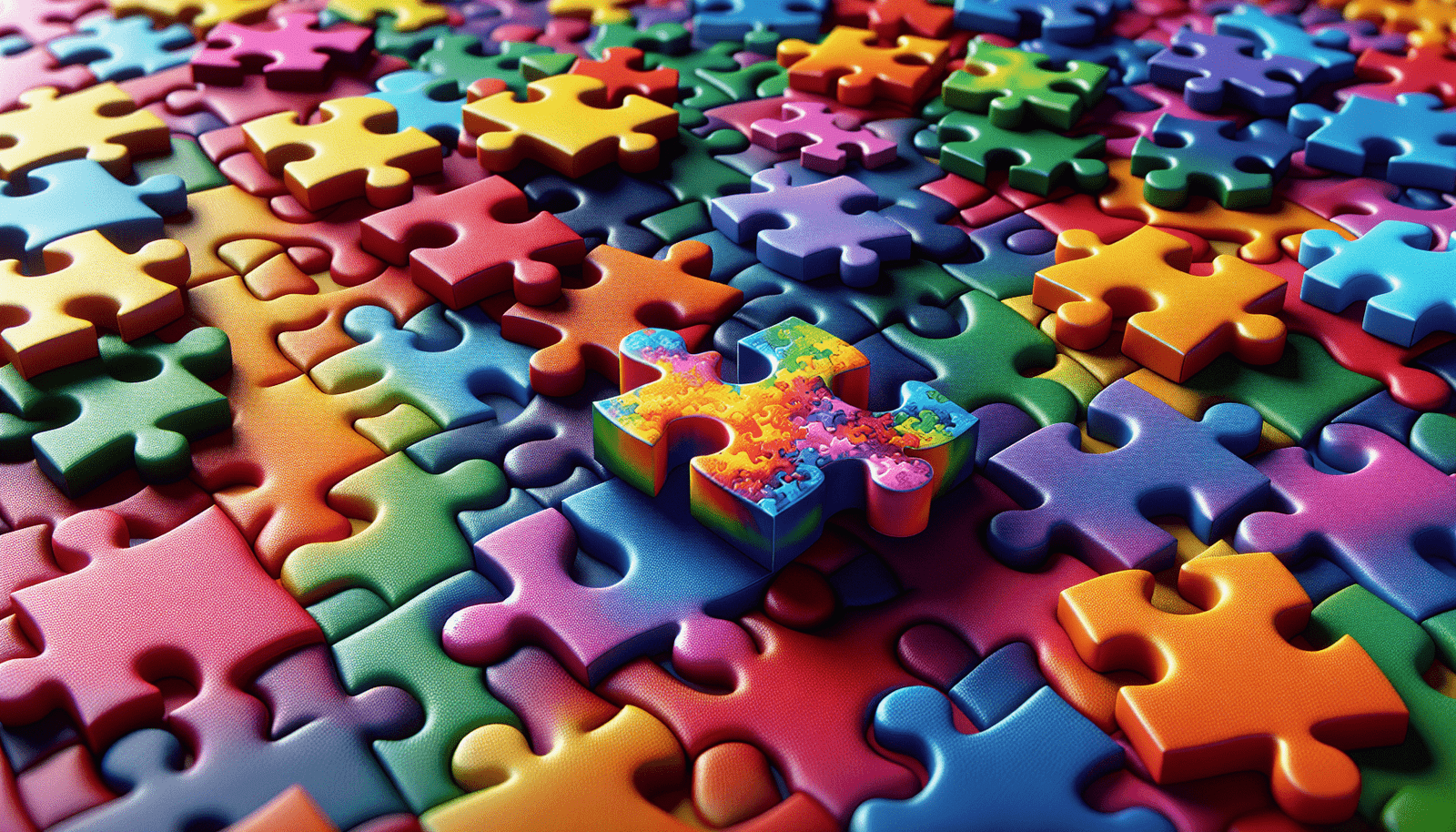Are you looking for ways to nurture your child’s creative problem-solving skills? Look no further! In this article, we will explore the fascinating world of educational toys and their role in fostering these essential skills. Discover how these toys can engage young minds, stimulate critical thinking, and provide endless opportunities for imaginative play. Whether your little one prefers building blocks, puzzles, or science kits, you’ll learn about the numerous benefits of incorporating educational toys into their playtime. So, get ready to unlock your child’s potential and watch their problem-solving abilities flourish!
Educational Toys Foster Creative Problem Solving Skills
Understanding Creative Problem Solving
Definition of creative problem solving
Creative problem solving refers to the ability to think outside the box, come up with innovative solutions, and approach challenges from a different perspective. It involves the application of imagination, critical thinking, and analytical skills to find unique answers to problems. Creative problem solving encourages individuals to explore various possibilities and embrace new ideas, ultimately leading to more effective and efficient problem-solving outcomes.
Importance of problem-solving skills in children
Problem-solving skills are essential for children’s overall development and success in life. As they grow, children encounter various obstacles and challenges that require them to think critically and find solutions. Strong problem-solving skills enable children to overcome obstacles, make informed decisions, and develop a sense of independence and confidence. These skills not only aid in academic pursuits but also have lifelong implications, as children who excel in problem-solving are more likely to succeed in their careers and personal relationships.
Role of Educational Toys in Child Development
Overall contribution towards cognitive development
Educational toys play a significant role in promoting cognitive development in children. These toys are specifically designed to engage children’s minds, stimulating their thinking processes and enhancing their cognitive abilities. By providing children with opportunities for hands-on exploration and problem-solving, educational toys help develop their memory, attention span, and information processing skills. Through active engagement with these toys, children are able to acquire knowledge and develop their cognitive abilities in a fun and engaging manner.
Improving kids’ focus and attention, nurturing curiosity
Educational toys contribute to the improvement of children’s focus, attention, and concentration. Many of these toys require children to pay attention to details, follow instructions, and think critically. By engaging with educational toys, children learn to concentrate on a particular task or problem, which in turn enhances their ability to focus on academic tasks and other activities. Moreover, educational toys foster curiosity by encouraging children to question, explore, and seek answers independently. This curiosity-driven exploration cultivates a love for learning and nurtures a lifelong passion for discovery.
Boosting Creativity through Educational Toys
How toys promote exploration and experimentation
Educational toys provide children with the freedom to explore and experiment, thus fostering creativity. These toys often feature open-ended designs that allow children to use their imagination to create and innovate. By encouraging children to explore different possibilities and experiment with various approaches, educational toys stimulate their creative thinking and problem-solving abilities. Whether it’s building structures with construction sets or experimenting with science kits, these toys inspire children to think creatively and find unique solutions to challenges.
Fostering imagination and original thoughts
Educational toys play a crucial role in fostering children’s imagination and promoting original thoughts. Many of these toys involve storytelling, role-playing, and pretend play, which encourage children to imagine and create their own narratives and scenarios. Through imaginative play, children develop their storytelling skills, enhance their ability to think outside the box, and express their unique perspectives. This development of imagination and original thoughts is vital for creative problem solving, as it allows children to approach challenges from different angles and come up with innovative solutions.
Promoting flexibility in thinking
One of the key benefits of educational toys in fostering creative problem solving is their ability to promote flexibility in thinking. These toys often present children with complex problems that require them to adopt flexible thinking strategies. By engaging with educational toys, children learn to view problems from multiple perspectives, consider different possibilities, and adjust their thinking accordingly. This flexibility in thinking is invaluable for creative problem solving, as it enables children to approach challenges with open minds and find creative solutions that traditional thinking might overlook.
Fostering Problem Solving Skills Through Educational Toys
Improving critical thinking
Educational toys provide children with opportunities to develop critical thinking skills. Many of these toys involve puzzles, brain teasers, and strategic games that require children to analyze, synthesize, and evaluate information. By engaging in these activities, children develop their ability to think critically, analyze problems, and make informed decisions. Through the challenges presented by educational toys, children learn to approach problems systematically, consider different options, and evaluate the outcomes of their actions.
Enhancing decision making abilities
Decision-making plays a crucial role in problem solving, and educational toys help enhance children’s decision-making abilities. These toys often require children to make choices, weigh pros and cons, and anticipate potential outcomes. By engaging with educational toys, children learn to evaluate different options, make informed decisions, and take responsibility for their choices. This development of decision-making abilities not only aids in problem-solving but also prepares children for future decision-making situations in all aspects of life.
Fostering logical reasoning
Educational toys promote the development of logical reasoning skills, which are fundamental for effective problem solving. Many of these toys involve logical thinking, spatial reasoning, and pattern recognition. By engaging with puzzle toys and games, children learn to identify patterns, make logical connections, and think analytically. Through these activities, children develop their ability to recognize cause and effect relationships, formulate logical arguments, and apply logical strategies in problem-solving situations.
Developing spatial and mechanical skills
Educational toys such as construction and building sets contribute to the development of spatial and mechanical skills, which are essential for problem solving. These toys allow children to manipulate objects, understand spatial relationships, and develop their fine motor skills. By engaging in construction and building activities, children learn to visualize and plan their designs, problem solve through trial and error, and develop a deeper understanding of spatial concepts. These skills not only enhance problem-solving abilities but also have broader applications in fields such as engineering, architecture, and design.
Types of Educational Toys that Foster Problem Solving Skills
Puzzle toys and games
Puzzle toys and games are excellent tools for fostering problem-solving skills. These toys come in various forms, such as jigsaw puzzles, logic puzzles, and brain-teasers. They require children to think critically, use logical reasoning, and strategize to solve the given problem. By engaging with puzzle toys and games, children develop patience, perseverance, and the ability to break complex problems into smaller, more manageable parts. These toys also promote spatial awareness, pattern recognition, and the ability to think outside the box.
Construction and building sets
Construction and building sets are another type of educational toy that fosters problem-solving skills in children. These toys include building blocks, magnetic tiles, and engineering sets that allow children to design and construct structures. By engaging with construction and building sets, children develop their spatial reasoning, fine motor skills, and creativity. These toys encourage children to plan, problem solve, and adapt their designs, fostering critical thinking and innovation. Moreover, construction and building sets provide opportunities for collaborative problem-solving, as children often work together to overcome challenges and build complex structures.
Science and STEM discovery toys
Science and STEM (Science, Technology, Engineering, and Mathematics) discovery toys are designed to promote problem-solving skills and scientific inquiry. These toys include chemistry sets, robotic kits, and coding games. By engaging with science and STEM discovery toys, children develop their critical thinking, logical reasoning, and analytical skills. These toys encourage children to explore and experiment, fostering a sense of curiosity and creativity. Moreover, they provide opportunities for hands-on problem solving, allowing children to apply scientific principles and methods to real-life situations.
Case Studies
Effective use of educational toys in schools
Educational toys have proven to be effective tools in schools for fostering problem-solving skills. Many schools incorporate educational toys into their curriculum to enhance learning and engage students in active problem-solving activities. For example, some schools use puzzle toys and games to teach mathematics and logical reasoning, while others integrate construction and building sets to teach engineering concepts. These hands-on activities not only make learning more enjoyable but also develop students’ problem-solving abilities and critical thinking skills. Students who engage with educational toys in the classroom are often more motivated, creative, and confident in their problem-solving abilities.
Success stories of problem-solving skills development
There are numerous success stories highlighting the positive impact of educational toys on problem-solving skills development. One such success story is the use of robotics kits in schools. These kits allow students to design and program robots to solve specific challenges. Through this hands-on experience, students learn to think critically, solve complex problems, and collaborate with their peers. Not only do they develop essential problem-solving skills, but they also gain valuable insights into the fields of engineering and technology. Similarly, puzzle-solving games have been used to improve critical thinking skills, helping students become more efficient problem solvers across various subjects.
Critics of Educational Toys
Arguments against educational toys restricting creativity
Some critics argue that educational toys may restrict creativity by imposing rules and predefined outcomes. They believe that these toys may limit a child’s ability to explore freely and come up with their own unique solutions. However, it is important to note that many educational toys, especially those designed to foster creative problem solving, provide an open-ended environment that encourages imaginative exploration. The key lies in carefully selecting toys that promote creativity and allowing children the freedom to interpret and innovate within set boundaries.
Concerns over relevance and appropriateness of certain toys
Another criticism of educational toys revolves around concerns regarding the relevance and appropriateness of certain toys. Critics argue that some educational toys may not align with the child’s interests, abilities, or learning style, making them ineffective in fostering problem-solving skills. It is crucial to consider a child’s individual needs and preferences when selecting educational toys. By choosing toys that align with a child’s interests, abilities, and motivation, parents and educators can ensure that the toys effectively contribute to problem-solving skill development.
Choosing the Right Educational Toys
Matching toys with child’s interests
When choosing educational toys, it is important to consider a child’s interests and preferences. By selecting toys that align with a child’s interests, parents and educators can ensure that the child remains engaged and motivated to explore and problem solve. Whether a child is interested in science, building, art, or puzzles, there are educational toys available to cater to their specific interests. By providing children with toys that capture their imagination and enthusiasm, parents and educators can foster a love for problem-solving and creativity.
Considering child’s age and skill level
Educational toys should be age-appropriate and challenging enough to promote problem-solving skills development. It is crucial to consider a child’s age and skill level when selecting toys. Toys that are too easy may not sufficiently challenge the child, while toys that are too advanced may lead to frustration and disengagement. It is important to choose toys that provide an appropriate level of difficulty, allowing the child to gradually develop their problem-solving abilities and build confidence.
Balancing fun and learning in toys
Educational toys should strike a balance between fun and learning. It is essential for children to enjoy playing with the toys while still engaging in meaningful problem-solving activities. By selecting toys that combine entertainment with educational value, parents and educators can ensure that children remain motivated and enthusiastic about problem solving. When children associate problem-solving activities with enjoyment and satisfaction, they are more likely to develop a lifelong passion for creative thinking and innovation.
Impact of Technological Toys on Problem Solving Skills
Use of apps and digital games
Technological toys, such as apps and digital games, have become increasingly popular in recent years. These toys offer interactive and immersive experiences that can enhance problem-solving skills in children. Apps and digital games often require children to decipher puzzles, strategize, and think critically to progress through levels or achieve specific goals. By engaging with these toys, children develop their cognitive abilities, spatial skills, and logical reasoning. However, it is important to strike a balance between screen time and other forms of play, as excessive use of technological toys may hinder social interaction and limit physical activity.
Pros and cons of technology in fostering problem-solving skills
Technology can be a valuable tool in fostering problem-solving skills in children. It provides interactive and engaging experiences that can enhance cognitive abilities and critical thinking. Technological toys often offer immediate feedback and adaptive challenges, allowing children to learn at their own pace and receive personalized support. Moreover, technology allows for virtual collaborations and exposes children to a global community of problem solvers. However, it is important to monitor and regulate screen time, as excessive use of technology may lead to sedentary lifestyles and hinder the development of other essential skills, such as fine motor skills and social interaction.
Conclusion
Educational toys play a vital role in fostering creative problem-solving skills in children. By providing hands-on, engaging experiences, these toys contribute to cognitive development, enhance focus and attention, and nurture curiosity. They promote exploration, experimentation, and imagination, fostering creativity in problem solving. Furthermore, educational toys improve critical thinking, decision-making, logical reasoning, and spatial and mechanical skills.
It is important to select the right educational toys that match a child’s interests, consider their age and skill level, and balance fun and learning. While technological toys can enhance problem-solving skills, it is necessary to strike a balance and monitor screen time. By harnessing the power of educational toys, parents and educators can cultivate a generation of creative problem solvers equipped with essential skills for success.









